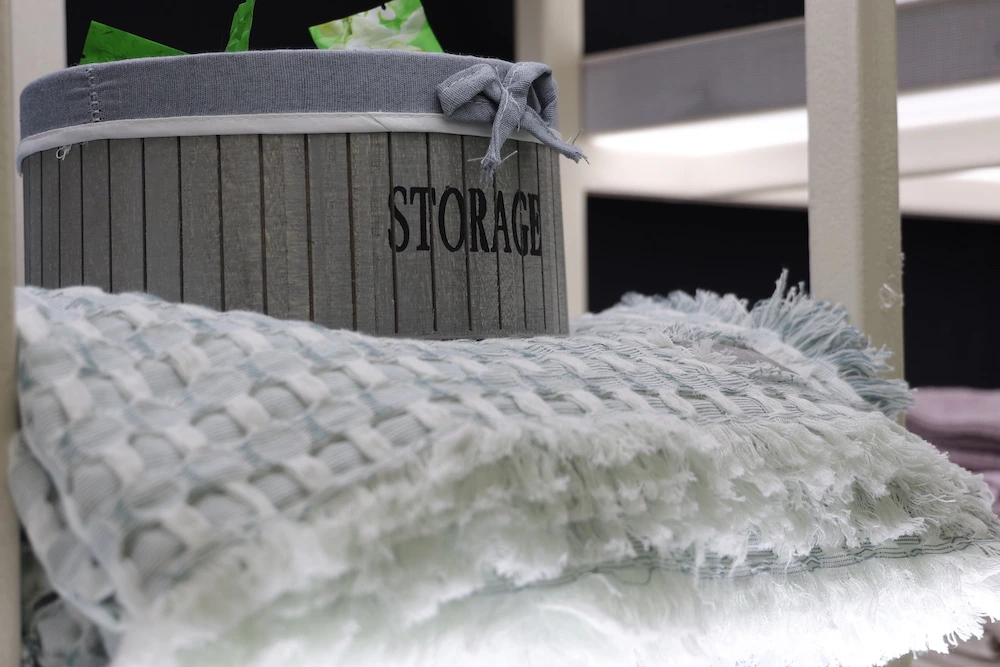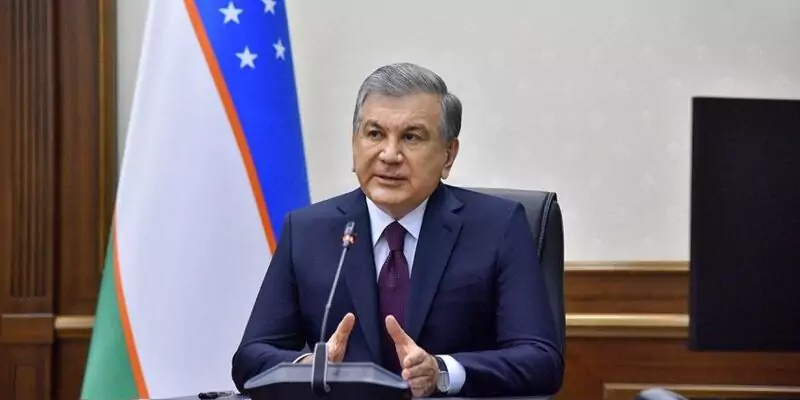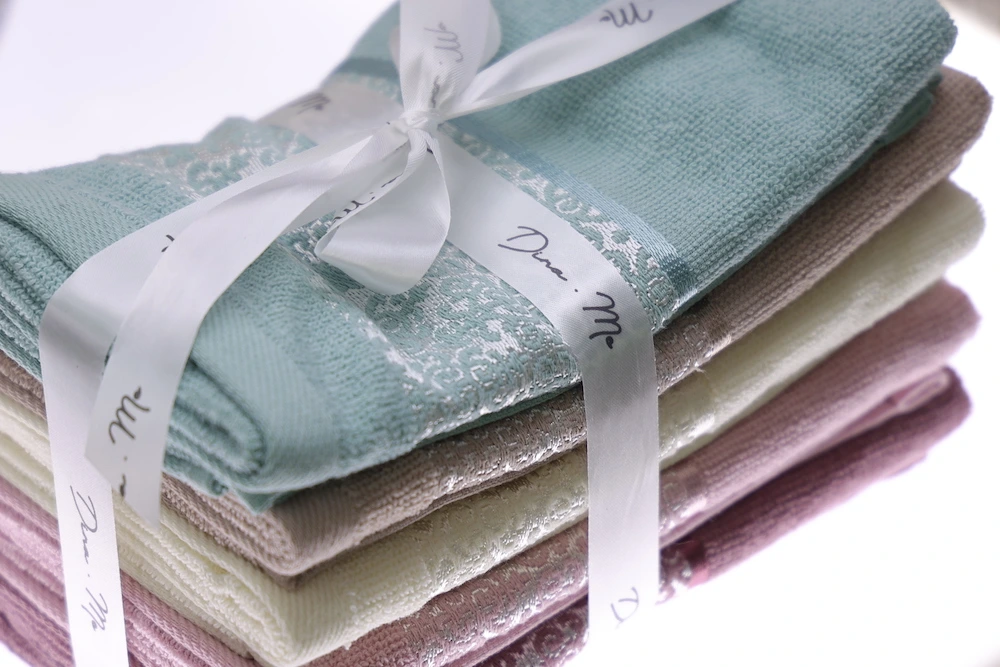The textile and garment industry of Uzbekistan has undergone a significant transformation in recent years, emerging as a key player in the global textile market. At the forefront of this evolution stands the Uztextileprom Association, established in 2017 under the vision of the President of the Republic of Uzbekistan, Sh. Mirziyoyev.
Their mission and goals revolve around elevating Uzbekistan’s textile sector by bridging governmental support with private enterprise, while advancing the industry’s presence on the international stage. With a history steeped in cotton cultivation dating back to the Silk Road era, Uzbekistan aims not just to be a cotton exporter but a prominent textile and resource hub in Central Asia.
In this exclusive interview, we delve into the association’s strategies, statistics, industry advantages, investment potential, upcoming events, and future outlook for Uzbekistan’s textile industry.
Could you provide an overview of the Association of Textile and Garment Industry of Uzbekistan, including details about its vision, mission, and goals? Additionally, we are interested in understanding the specific ways in which the association supports Uzbek textile producers.
In 2017, the Uztextileprom Association was established under the directive of the President of the Republic of Uzbekistan. Before this, the Association was under the purview of the Ministry of Light Industry and the State Joint Stock Company ‘Uzbekengilsanoat.’
Since 2016, guided by President Sh. Mirziyoyev, the significance of the textile industry has seen a notable upswing, earning it a new status as a strategically vital sector and a key driver of the nation’s economy.
Rooted in a rich history dating back to the Silk Road era, Uzbekistan’s textile industry has been globally recognized for its prowess in cotton cultivation and export. The nation, renowned for producing high-quality cotton, has transitioned its focus to actively increasing the production of finished textile products. Uzbekistan aims to position itself not merely as a cotton exporter but as a central textile and resource hub in Central Asia.
Uztextileprom Association serves as a steadfast partner to the private sector, acting as a bridge between the Government and textile companies. The Association actively advocates for industry interests, promotes the sector globally, and fortifies its international market standing.
Collaborating with enterprises and international experts, the Association formulates a comprehensive strategy for the textile industry, drawing insights from global experiences and conducting in-depth studies. A pivotal focus is on elevating product quality to align with stringent international standards.
With an ambitious vision, the Association aspires to become a leader in the production of ready-made textiles and a trusted source of high-quality textiles by 2030. Recognized as an undisputed leader in regional textile sector development, the Association continues to drive forward with its strategic objectives.

Can you share key statistics about the Uzbekistan textile and garment industry, including the number of association members, total textile companies, and import-export rates?
Boasting a membership exceeding two thousand textile enterprises, the Uztextileprom Association experiences daily growth, a testament to its increasing influence and credibility. We take pride in the Association’s ability to garner trust from prominent manufacturers in Uzbekistan.
Among the influential players in the cotton textile industry, the Association proudly counts Art Soft Holding, Uztex Group, Global Textile, Nil Granit Samo, Bunyodkor Textile, Best Fashion Group, Pronto Textile, Mergan Tex, Osborn Textile, Haj Textile, Bakht Group, Indorama Kokand Textile, Posco International, Textile Technologies Group, and Istiqlol Dizayn. Additionally, the Association includes companies carving their niche with distinct brands such as Look At Me (Urban Style), Bonito Kids, Yustex, and Aisha Home.
The textile sector in Uzbekistan boasts a robust landscape, comprising over 12,000 companies and employing more than 600,000 individuals. Annual textile exports stand at an impressive US$ 3.5 billion, complemented by a noteworthy industry investment surge to US$ 3.8 billion. Over the past five to six years, the sector has witnessed substantial growth, nearly tripling its exports. Notably, the proportion of finished goods in exports has seen a marked increase in recent years.
Noteworthy is our extensive global reach, with textile product exports spanning over 70 countries. Our international footprint includes a network of more than 100 trading houses and representative offices, strategically positioned in key regions such as the EU, US, North Africa, and the Persian Gulf. Further solidifying our global presence, the Association has established representative offices in Germany, Spain, Belgium, Poland, and Latvia, contributing to our commitment to fostering international partnerships and market expansion.

What are the key advantages of the Uzbekistan textile and garment industry? Additionally, which industries in Uzbekistan exhibit strength and promising prospects?
Uzbekistan stands out in the global textile landscape, leveraging its distinctive strengths to become a key player in the industry. Anchored by access to a substantial annual supply of raw cotton, amounting to 3.5 million tons, the nation benefits from a youthful and skilled workforce, fostering a dynamic environment for textile production. A significant demographic advantage is evident, with over 40% of the population aged between 18 and 40, ensuring a robust labor pool.
Crucially, Uzbekistan maintains a competitive edge in energy prices, positioning it favourably for sustained industrial growth. The country’s strategic location and commitment to a harmonious good-neighbour policy further enhance its appeal as a textile manufacturing hub.
Uzbekistan’s textile prowess extends across the entire supply chain, from raw cotton to finished products. The innovative introduction of cotton-textile clusters underscores the nation’s commitment to sustainable and efficient production practices. Notably, the private sector reaps the benefits of reduced reliance on cotton exports.
A significant investment of over 2.2 billion dollars has been dedicated to the development of cotton-textile clusters, leading to notable advancements in cotton yields, agricultural sector growth, agro-technologies, and responsible water resource utilization. A standout achievement lies in the implementation of a traceability system within the clusters, ensuring transparency and quality assurance throughout the entire production chain—from the field to the consumer.
Through vertical integration, these clusters guarantee the superior quality of products right from the inception of the production process. Uzbekistan’s strategic foresight and comprehensive approach position it as a formidable force in the global textile industry, pioneering advancements and setting new standards in sustainable manufacturing.
What factors make Uzbekistan attractive for new textile industry investments? Why should international textile companies consider investing in Uzbekistan? Any specific recommendations for foreign investors?
Recent statistics underscore Uzbekistan’s textile industry as a standout leader in attracting foreign investments. Over the past five years, the nation has witnessed the establishment of more than 400 new textile companies, drawing a remarkable influx of investments totaling 3.8 billion dollars.
Investment prospects in Uzbekistan, particularly within the textile sector, are robust and promising. Special Economic Zones strategically located in Namangan, Andijan, and Kashkadarya have been established, aiming to amplify the production of textile goods.
The appeal for investors extends beyond these zones, encompassing factors such as abundant raw materials, a skilled and qualified labor force, cost-effective energy resources, swift access to key markets—such as the EU within 12–14 days—and the advantage of free trade agreements with CIS countries.
Regular engagements with investors and businesses from diverse countries prompt a recurring question: Why Uzbekistan? Responses highlight the pivotal factors of guaranteed property security and confidence in the nation’s future.
Uzbekistan’s strategic trade policies further bolster its attractiveness, with a free trade regime with CIS countries, utilization of GSP+ for EU market entry, and GSP+ FE for the UK. Notably, the extension of the GSP+ system to Uzbekistan by the EU in November 2023 for the next four years presents a significant opportunity for both Uzbekistan and EU countries. With a target to achieve 1.2 billion in exports to the EU by 2027, Uzbekistan’s textile industry stands poised for sustained growth and mutually beneficial partnerships.

Are there any textile events or exhibitions in Uzbekistan organized or supported by your association? Could you provide further details about these initiatives?
Demonstrating foresight and dedication, the Association has been at the forefront of advancing exhibition and fair activities on the global stage, proudly endorsing the “Made in Uzbekistan” initiative. Enjoying robust state support, our active participation is annually subsidized in over 30 international textile exhibitions.
A hallmark initiative of the Association, the Tashkent Textile Week, stands as the largest business platform in Central Asia, playing a pivotal role in fostering regional textile industry growth. This comprehensive event encompasses multiple large-scale components, including the Uztextile Expo—an international textile and fashion exhibition—the CAITME Central Asian textile machinery exhibition, the Tashkent Textile Summit, the Ready-to-wear Fashion Show, and the Sustainable Production Tour.
In collaboration with Iteca Exhibitions, the Association consistently spotlights pressing global textile industry issues during Tashkent Textile Week. Drawing attention on an international scale, the 2023 edition witnessed the participation of over 12,000 individuals from 40 countries—a testament to our impactful international PR campaign.
Our unwavering commitment to propelling the textile industry forward is epitomized by these initiatives, solidifying the Association’s role as a catalyst for innovation, collaboration, and international dialogue within the dynamic realm of textiles.
Also, Uzbekistan gained hosting in 2024 joint annual events of the International Textile Manufacturing Federation ITMF https://www.itmf.org/conferences/annual-conference-2024 and International Apparel Federation (agreed on ITMF 2023 in China and IAF 2023 in USA to be in 8-10 Sept 2024). For the first time, Uzbekistan organizes it in the country.
What is your outlook on the future of Uzbekistan’s textile industry: emphasizing investments in cotton yarn production and export or diversifying into value-added processes like weaving and finishing?
Our vision is anchored in ambitious targets—specifically, achieving a remarkable 10 billion dollars in textile exports by 2027. To realize these goals, we are steadfastly committed to a multifaceted approach encompassing the expansion of our product range, the elevation of product quality, the introduction of novel product types, integration of innovative practices, and the comprehensive training of our workforce.
Uzbekistan has positioned itself as a formidable contender in various textile segments, competing effectively in the production of canvas, fabrics, dyed products, home textiles, and carpets. Our commitment to excellence has propelled us into direct competition with global producers in these categories.
Strategically, we are diversifying our production portfolio to include high-margin products like technical fabrics, lingerie, corsetry items, and children’s products made from synthetic and blended fabrics. A pivotal focus lies on fostering innovation, with dedicated initiatives in smart fabrics, organic cotton, and cutting-edge textile products.
Our trajectory is set towards sustainability and traceability, with a strong emphasis on the circular and green economy within the textile industry. Implementing Environmental, Social, and Governance (ESG) principles, as well as embracing Corporate Social Responsibility (CSR), underscores our commitment to responsible business practices. This forward-looking approach positions Uzbekistan as a leader in the global textile landscape, shaping the industry’s future through a lens of innovation, sustainability, and ethical responsibility.



















